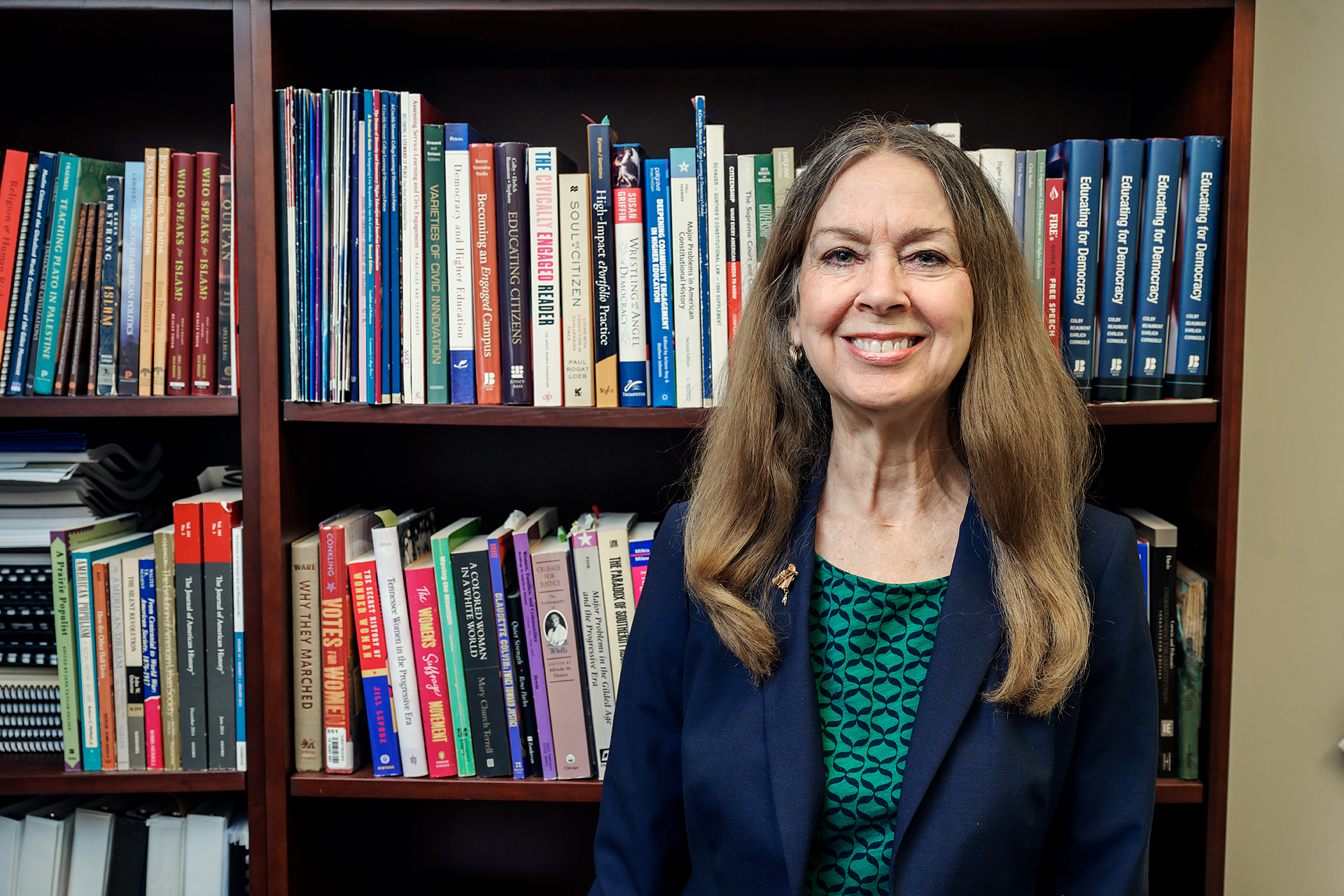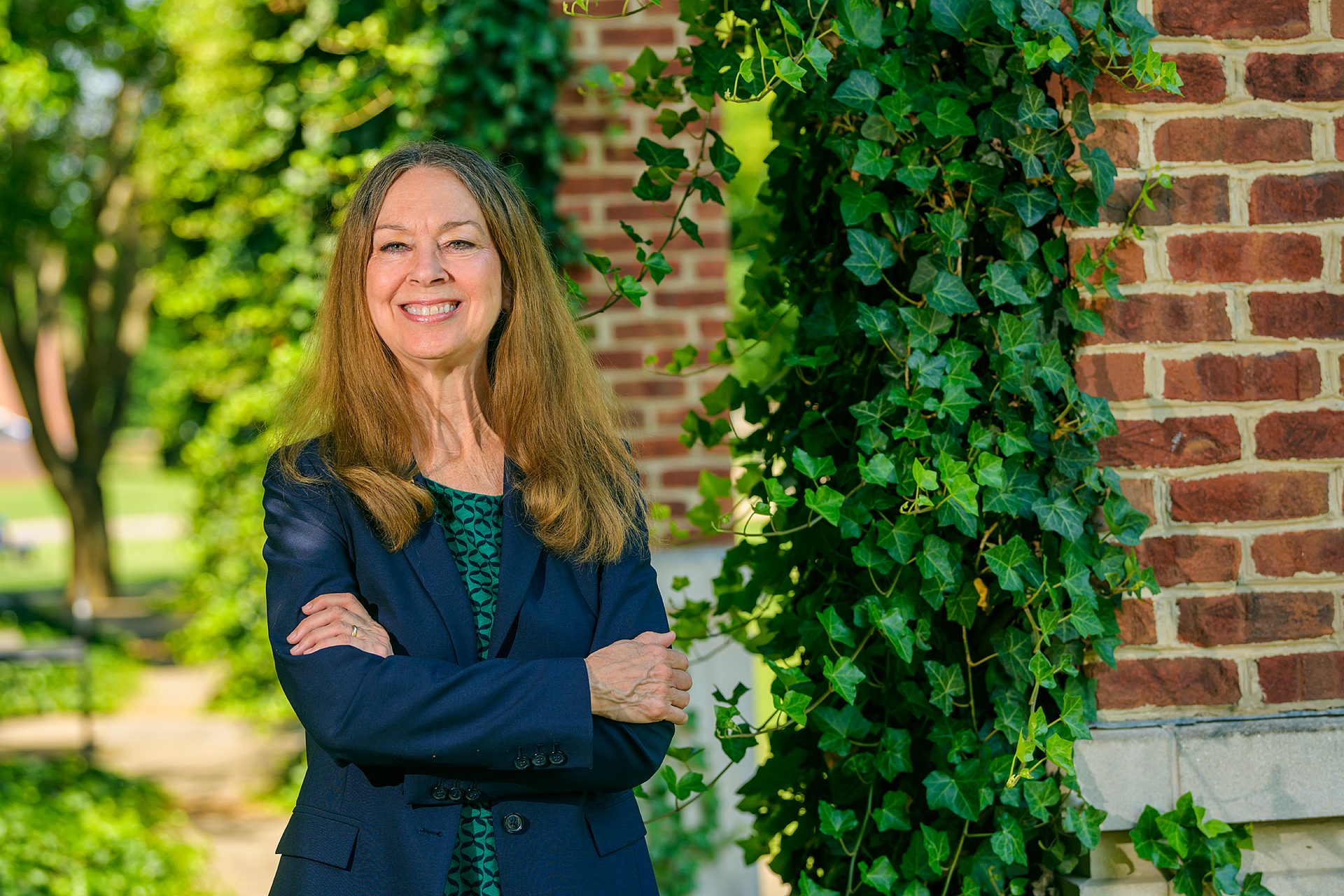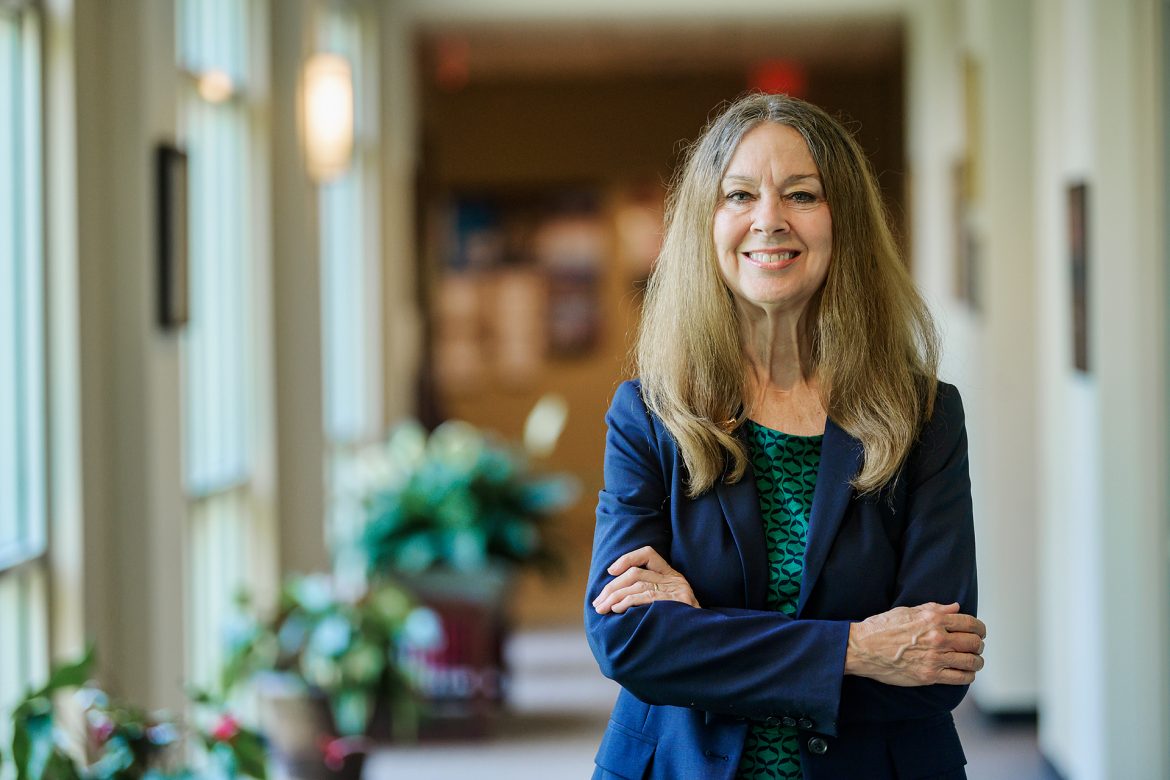By: DeAnn Hays and Matthew Hibdon
As a history professor in MTSU’s University Honors College, Dr. Mary Evins primarily teaches freshmen who are just beginning their college careers. When the COVID-19 pandemic changed the way she taught in-person classes, the one thing that didn’t change was her devotion to teaching her students about their civic duty and her pride in the MTSU community.
While many classes were remote or hybrid over the last academic year, Dr. Evins taught all of her classes in-person, even though that meant getting creative and giving up what she calls the “best classroom on campus.”
“Almost all of my classes have been in Honors Building Room 218. I say this with utter bias; it is the best classroom on campus – it’s wonderful,” Evins said. “Every chair for the students is an armchair with rollers so you can move around and create clusters for discussion.”
However, her favorite classroom wasn’t ideal for physical distancing, so Dr. Evins and her students moved to a larger space, with cross ventilation, in Honors College’s Simmons Amphitheatre and also took advantage of nice weather outside when possible.

Mary Evins, History Faculty, in and around Paul W. Martin, Sr. Honors College Building. (Photo: Andy Heidt)
Dr. Evins said during an election year, like 2020, a highlight of her civic engagement course is going together as a class to vote on the first day of early voting.
And even though it looked a little different during the pandemic than in other election years, she and her students made it work all while following public health guidelines.
After casting their votes, most for the first time in their life, the students went to lunch in the side garden of The Alley on Main where they experienced another first – seeing their classmates unmasked for the first time.
“Because MTSU protocols allowed for students to take their masks off when eating, we created an opportunity to eat together. My students were all first-semester freshmen and the lunch was the first time they had seen their classmates’ faces,” she said. “They were saying, ‘Oh, it’s so good to see what you look like! I love seeing your face’ when they all unmasked together at the meal. I was aware of the happiness they were experiencing at the time and that our outside-of-the-classroom trip meant a lot to them. And then later they also wrote about it.”
Dr. Evins knew the day had been a meaningful experience because she has students reflect on what they are learning, to focus on the “meta-analysis of self” in her courses, and her students looked back on that day together as one of the high points of the semester.
“My students journal through the entire semester. We do it in all of my classes. Students get to talk about themselves. I evaluate their writing for depth and breadth and the time they take to really think about what they’re experiencing and then to relate it back to history and their other courses. Because I teach history, I am in a position to help students create connections, to be sure they understand that we’re making history right now, every day. I tell them, ‘These are things you’ll be telling your children and grandchildren about.’ Hopefully, in the years to come, the 15 months of COVID-19 will become the distant past to them, but I for sure want them to remember that they lived through it with determination and showed grit and fortitude and grew from it.”

Mary Evins, History Faculty, in and around Paul W. Martin, Sr. Honors College Building. (Photo: Andy Heidt)
Because of the journaling, Dr. Evins was able to see how her students were handling being first-time college students all while navigating life during a pandemic.
“They were struggling, and they needed affirmation, which is always true but this was an especially difficult year. Our students just needed to know they were being strong. They needed to know how proud we were of them. They needed confidence to stay the course, stick it out, and keep plugging away,” she said.
Like many, Dr. Evins looks forward to students returning to campus this fall and seeing their faces every day in class.
“For me, I am one of those people who needs the full expressive face to be able to really recognize people, to see their smiles, to feel the warmth of the human relationship. I look forward to that richer level of personal connection come fall, which is certainly the hallmark of what all of our relationships on campus are built on. I’m really proud of this university. I’ve been so inspired by our students’ flexibility, their ability to compromise and see the glass as half full, and for staying strong and resolute even when it’s been really, really tough,” she said.
Dr. Evins has been teaching at MTSU since 2005 and serves as coordinator for MTSU’s American Democracy Project for civic learning.
–DeAnn Hays (deann.hays@mtsu.edu)
-Matthew Hibdon (matthew.hibdon@mtsu.edu)


COMMENTS ARE OFF THIS POST